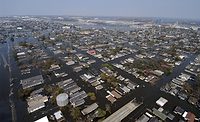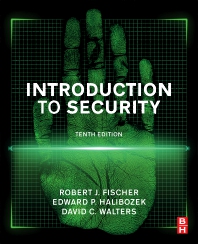FEMA to host 2021 Hazard Mitigation Partners Workshop

The U.S. Federal Emergency Management Agency (FEMA) will host the Hazard Mitigation Partners Workshop on May 3, 2021 - May 6, 2021. The Hazard Mitigation Partners Workshop is the annual gathering of hazard mitigation stakeholders with the purpose of informing and updating them about mitigation grants and floodplain management, strengthening those relationships, and providing knowledge transfer between FEMA and invited attendees.
The Hazard Mitigation Partners Workshop will offer both Hazard Mitigation Assistance (HMA) and Floodplain Management (FPM) tracks, which are identified in the below agenda.
INSTRUCTIONS: To register for a session or plenary, select the hyperlinked topic and it will take you to its registration page. You must individually register for every session and plenary you would like to virtually attend. When sessions run concurrently, choose and register for one topic only.
Agenda
Monday, May 3, 2021
Noon – 12:45 p.m. Plenary - Resilience, Equity, and Future Conditions – How they tie together with FEMA’s strategic vision
FEMA leadership will discuss how the week's focus on resilience, equity, and future conditions aligns with FEMA's vision and mission.
12:45 – 1 p.m. Plenary - Plenary - Building from a Strong Foundation – Celebrating Success Stories in Mitigation and Resilience
This session will highlight accomplishments, celebrate lessons learned and spotlight success stories that provide a snapshot of the journey towards resilience.
1 – 1:45 p.m. Plenary - Taking a Walk in Someone Else’s Shoes: Observations on Resilience and FEMA’s Programs
This session will focus on the intersection of stakeholder experiences with resilience and FEMA’s policies and programs.
1:45 – 2 p.m. - Break
2 – 2:45 p.m. - Concurrent Sessions A (Register for One)
Topic 1 (HMA Track): Branch Chief Round Table: HMA Updates
This round table will discuss the overarching goals of the Hazard Mitigation Assistance (HMA) program, particularly Building Resilient Infrastructure and Communities (BRIC), Flood Mitigation Assistance (FMA), Hazard Mitigation Grant Program (HMGP), and Public Assistance (PA) mitigation.
Topic 2 (FPM Track): Branch Chief Round Table: FPM Updates
The overarching goals of the Floodplain Management Planning (FPM) Division will be discussed by a roundtable of experts.
Topic 3 (Open):Overview of the National Mitigation Investment Strategy (NMIS)This session will focus on the Investment Strategy as it ties to resilience planning.
Topic 4 (Open): Base Level Engineering & North Dakota Risk Assessment MapService (NDRAM)
Learn about North Dakota’s Base Level Engineering efforts and how the dataset is impacting the various FEMA grant programs along with the public and private sectors.
2:45. – 3 p.m. - Break
3 – 3:45 p.m. - Concurrent Sessions B (Register for One)
Topic 1 (HMA Track): Tribal Mitigation: Challenges, Successes, and the Future Learn the importance of tribal mitigation projects, their challenges and successes, and how the HMA Division can support learn and grow from these challenges and successes to help support the future.
Topic 2 (FPM Track): Partnerships in Disaster Response and Resiliency
This presentation will discuss the challenges associated with a community's largest flood disaster and discuss the challenges from the community’s perspective.
Topic 3 (Open): Hazard Mitigation Under FEMA’s Individuals and Households Program
This session intends to start the conversation about the importance of resilience and why it's the cornerstone of FEMA's strategic plan.
Topic 4 (Open): Forging Non-Traditional Mitigation Partnerships: Engaging Building Code Officials to Increase Community Resilience
This session discusses the importance of building code adoption in the greater scheme of FEMA's strategic goal of preparedness.
3:45 – 4 p.m. - Break
4 – 4:15 p.m. Daily Wrap Up: Reflection
This session is a reflection from FEMA leadership on the discussions and learnings from Day 1 (Resilience) and provide an opportunity for participants to share their reflections as well.
Tuesday, May 4, 2021
Noon – 12:15 p.m. Plenary - Toward a More Equitable Future for Mitigation
This session will discuss the importance of equity in mitigation, and the impact that equity has on historically marginalized communities. The session will explore the possibilities of what could be for FIMA in a more equitable future.
12:15 – 1 p.m. Plenary - Equity Matters: Defining Equity through a Mitigation Lens
In this panel session, mitigation leaders from across the country explore the "Executive Order On Advancing Racial Equity and Support for Underserved Communities Through the Federal Government" and their own personal observations and experiences to help listeners develop a common understanding and shared lexicon of what equity means in the mitigation context.
1 – 1:45 p.m. - Plenary - Learning from the Past | Rising to the Occasion: A Discussion on Creating Success in Equity in the Mitigation Space
In this discussion, panelists weave in stories and perspectives about equity in relation to FEMA’s mission to help individuals prepare for disasters.
1:45 – 2 p.m. -Break
2 – 2:45 p.m. - Concurrent Sessions A (Register for One)
Topic 1 (HMA Track): Resource Alignment to Fund Mitigation Activities (BCA Challenges)
This session will focus on the challenges of benefit-cost analysis (BCA) as it pertains to small and impoverished communities.
Topic 2 (FPM Track): The Hidden World of Hazard Mitigation: Utilizing Data Analytics to Uncover New Approaches to Mitigation
Utilizing critical and innovative data analytics, Floodplain Management explains how they explore communities in a new light.
Topic 3 (Open): Applied Hazard Mitigation Research: A National Survey of State Hazard Mitigation Officers (SHMOs) and a Comparative Study of Buyouts in the United States and New Zealand
This presentation will focus on the results of a national survey conducted with state hazard mitigation officers in U.S. states and territories. It will also discuss a series of interviews with local officials in U.S. and New Zealand communities who were responsible for the management of hazard-prone housing acquisition or “buyout” programs.
Topic 4 (Open): Funding Strategies for Communities
In this session, we will focus on how FEMA’s Investment Strategy aligns with its mission. Potential topics may include grant programs, cost share, or the STORM Act.
2:45 – 3 p.m. - Break
3 – 3:45 p.m. - Concurrent Sessions B (Register for One)
Topic 1 (HMA Track): Building Alliances for Equitable Resilience
Join the Resilient Nation Partnership Network, Houston Office of Emergency Management, and the National League of Cities for a discussion on advancing equitable resilience.
Topic 2 (Open): Advancing NFIP Access: OFIA’s Initiative and Contribution to FIMA’s More Equitable Future
Join the conversation on the Office of the Flood Insurance Advocate’s (OFIA) initiative to expand National Flood Insurance Program (NFIP) access to those who have not yet utilized or realized all of its resources.
Topic 3 (Open): The Roadmap to Building Resilient Infrastructure and Communities
This panel session brings together the Missouri Department of Natural Resources and FEMA’s Building Resilient Infrastructure and Communities (BRIC) team to discuss mitigation and energy resilience planning through partnerships and outreach.
Topic 4 (Open): Acquisitions for Open Space
This presentation will cover the chronology of FEMA’s acquisition program since the start of the Hazard Mitigation Grant Program (HMGP), in 1989. Included will be a review of various facets of acquisition regulations - 44 CFR, Part 80 and guidance – HMA Policy Guidance Addendum of 2015, governing program implementation. Some of the recent challenges with program implementation will also be covered.
3:45 – 4 p.m. - Break
4 – 4:15 p.m. - Daily Wrap Up: Reflection
This session is a reflection from FEMA leadership on the discussions and learnings from Day 2 (Equity) and provide an opportunity for participants to share their reflections as well.
Wednesday, May 5, 2021
Noon – 12:15 p.m. Plenary - Future Conditions and FEMA’s Role in Building Resilience
During this session, leaders in the space will unpack the complex nature of planning and preparing for future condition that will impact the American people.
12:15 – 1 p.m. Plenary - Critical Actions to Address Future Conditions
In this session, presenters will provide context on the current state of factors that impact future conditions as well as the science and expected trajectory of each. Through the moderated panel, speakers will identify critical actions that can be taken to address future conditions.
1 – 1:45 p.m. Plenary - Planning for the Expected Unknown
This session will convene a collection of key stakeholders to offer perspectives and paths forward for addressing future conditions.
1:45 – 2 p.m. - Break
2 – 2:45 p.m. - Concurrent Sessions A (Register for One)
Topic 1 (HMA Track): The Role of Nature-Based Solutions in Mitigation and FEMA's Strategic Vision
A high-level discussion of FEMA's HMA Programs and where nature-based solutions fit into the broader picture of resilience, mitigation, and future conditions.
Topic 2 (FPM Track): Investing in Nature-Based Solutions
The National Fish and Wildlife Foundation (NFWF) seeks to share successes and challenges in delivering natural and nature-based solutions for coastal community resilience.
Topic 3 (Open): Infrastructure Resiliency and Climate Change: Enhancing Resilience to Future Storm Impacts in Boulder County, CO
This session will discuss best practices and lessons learned about infrastructure and its importance to communities. In particular, we will discuss how climate change impacts future hazards and comprehensive planning for communities.
Topic 4 (Open): Partnering with Your State Coastal Management Program to Achieve Resilience Priorities in Coastal Communities
This panel will highlight several examples of recent and ongoing partnerships between state hazard mitigation officials and their coastal program partners to achieve shared coastal resilience priorities.
2:45 – 3 p.m. - Break
3 – 3:45 p.m. - Concurrent Sessions B (Register for One)
Topic 1 (HMA Track): Research and Practice at the Intersection of Hazard Mitigation and Adaptation Planning
This session provides several perspectives around efforts that enable states and communities to incorporate future climate and environmental change impacts in their mitigation planning activities.
Topic 2 (FPM Track): Resilience through Compliance: FEMA's Post-Disaster Substantial Damage Initiatives
Rebuilding after a flood provides an opportunity to make buildings stronger and safer. The primary goal is to reduce risk from future floods.
Topic 3 (Open): State Foresters
This session will focus on opportunities for improving communications at the state level between emergency management agencies and state foresters focused on wildfire.
Topic 4 (Open): Building Resilience to Climate Hazards through Integrated Funding and Implementation in Buffalo, NY
This session will discuss the convergence of innovative funding and partnerships in building resilience in communities.
3:45 – 4 p.m. - Break
4 – 4:15 p.m. - Daily Wrap Up: Reflection
This session is a reflection from FEMA leadership on the discussions and learnings from Day 3 (Future Conditions) and provide an opportunity for participants to share their reflections as well.
Thursday, May 6, 2021
Noon – 3:45 p.m. - FPM Training Updates
FPM Training: NFIP State Coordinators & Floodplain Management Connect
This session is intended for National Flood Insurance Program state coordinating staff and FEMA floodplain management staff to discuss key initiatives including: Risk Rating 2.0: Equity In Action, the NFIP State Assessment and a reimaging/redesigning of the Community Assistance Visit process.
Noon – 1 p.m. - HMA Session A
HMA Training: HMA Training: FEMA GO – Tips and Tricks
This session will include a brief introduction for new users of the FEMA Grants Outcomes (GO) Grants Management system, lessons learned for next year, and plenty of time for questions and answers. The intended audience for this training is current FEMA GO users or state, local, territorial and tribal representatives interested in applying for BRIC or FMA grants.
1 – 1:45 p.m. - HMA Session B
HMA Training: Starting Your Mitigation Story with Scoping Your Plan/Plan Update
Right-sizing the scope of work of your plan/plan update can help prepare better sub-applications for planning grants, leading to better planning and better mitigation outcomes for your community. Join us for a collaborative planning and grants session to learn how to effectively scope your next planning process. The intended audience for this training is state, local, territorial and tribal representatives that are going to undertake a hazard mitigation planning process.
1:45 – 2 p.m. - Break
2 – 2:45 p.m. - HMA Session C
HMA Training: HMA Project Application Pitfalls
This training provides information on common Building Resilient Infrastructures and Communities and Flood Mitigation Assistance grant application errors and how to avoid them. The intended audience for this training is state, local, territorial and tribal representatives who are interested in applying for these types of grants.
2:45 – 3 p.m. - Break
3 – 3:45 p.m. - HMA Session D
HMA Training: Build Back Better Using Public Assistance Mitigation Funding
Learn the basics about how Public Assistance funding can be used to build back better after disasters. This session will discuss some background about PA Mitigation (sometimes called “406 Mitigation”), what’s eligible for funding, and address some common misunderstandings. The intended audience for this training is state, local, territorial and tribal representatives and FEMA staff who are interested in learning more about Public Assistance Mitigation.
Event Contact
For questions about the HM Partners Workshop, please email fema-2021hmworkshop@fema.dhs.gov.
Looking for a reprint of this article?
From high-res PDFs to custom plaques, order your copy today!






